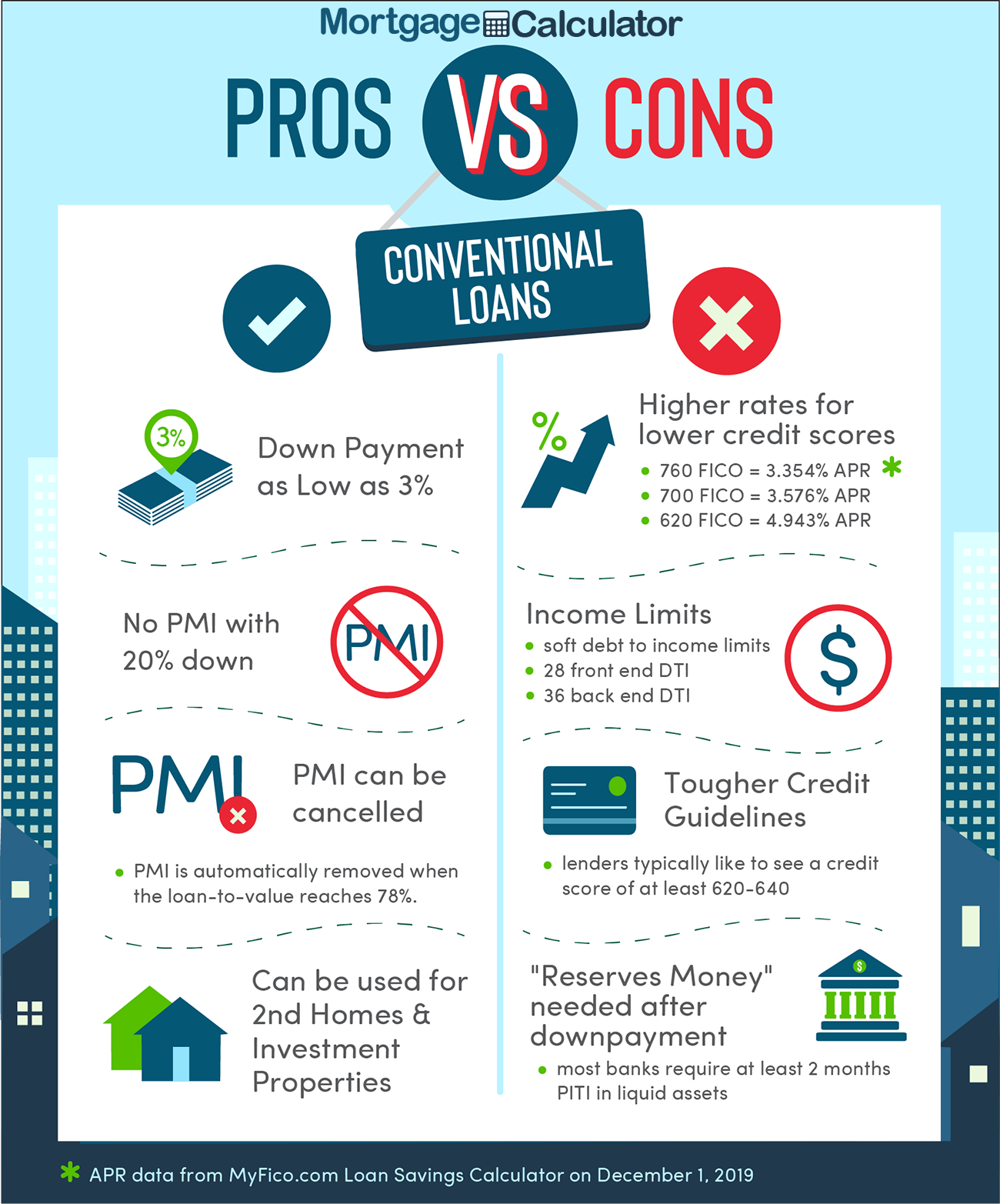Conventional Mortgage Loans: How They Contrast to Various Other Funding Options
Wiki Article
The Crucial Factors to Take Into Consideration When Finding In Between Fixed-Rate and Variable-rate Mortgage Finances
When reviewing home loan choices, borrowers face an essential decision between adjustable-rate and fixed-rate loans, each presenting possible challenges and distinct benefits. Trick considerations such as rates of interest security, predictability in regular monthly settlements, and the effects of potential rate changes can significantly affect long-term monetary health and wellness. Additionally, comprehending the expected duration of homeownership and the general price of borrowing can shape one's approach. As these variables intertwine with private financial scenarios and risk resistance, the ramifications of this choice may not be as simple as they appear. What subtleties should be prioritized in this essential decision-making procedure?Rates Of Interest Security
When picking a mortgage, recognizing interest price security is essential for informed decision-making. Rates of interest can significantly impact the general expense of a home loan, and acknowledging the nature of these rates is important for customers. Fixed-rate home mortgages offer the benefit of regular regular monthly repayments over the life of the loan, securing debtors from market variations. This stability allows homeowners to plan their financial resources with higher certainty, as they will not be influenced by climbing interest rates.On the various other hand, adjustable-rate mortgages (ARMs) start with lower preliminary rates that may change periodically based on market problems. While this can cause lower settlements at first, it additionally introduces uncertainty, as debtors might face raised settlements if rate of interest rise. For those considering an ARM, it is essential to analyze the probability of rate changes, the potential for settlement boosts, and the size of the preliminary fixed-rate duration.
Ultimately, the choice between adjustable-rate and fixed-rate mortgages depends upon individual threat tolerance and monetary circumstances. Understanding rates of interest security aids customers make informed decisions that line up with their lasting monetary objectives.
Monthly Payment Predictability
While customers typically focus on rates of interest security, the predictability of monthly repayments is just as essential in the home loan choice process (Conventional mortgage loans). Regular monthly payment predictability plays a vital function in budgeting and economic preparation, as it straight influences a house owner's capital and general monetary health and wellnessFixed-rate home mortgages use a regular month-to-month settlement throughout the life of the car loan, enabling customers to anticipate and prepare their costs successfully. This security can be specifically useful for novice buyers or those on a set revenue, as it gets rid of the unpredictability related to changing settlements.
Conversely, adjustable-rate home loans (ARMs) usually include reduced first repayments that can transform gradually, resulting in possible irregularity in month-to-month obligations. While at first appealing, this changability can make complex financial preparation, especially if debtors do not account for future rate adjustments.
Potential Rate Adjustments
In the realm of variable-rate mortgages (ARMs), possible price modifications represent a significant element that consumers must carefully consider. Unlike fixed-rate home mortgages, where the rates of interest stays unchanged for the life of the funding, ARMs are identified by varying rate of interest rates that are tied to market indices. This irregularity can result in considerable modifications in regular monthly settlements, impacting the borrower's financial preparation and budgeting.Usually, ARMs have a preliminary fixed-rate period during which the interest price is stable. After this duration, nevertheless, the rate changes at predetermined intervals-- generally yearly. Debtors have to recognize the margin and index used to compute these modifications, as they directly affect future rates of interest. Additionally, ARMs typically consist of caps that limit how much the rate of interest can raise at each modification and over the life of the finance, which can offer some level of protection versus radical rate walkings.
Understanding these prospective changes is essential for debtors, as they directly influence long-lasting settlement responsibilities. Consequently, examining personal financial scenarios and take the chance of tolerance is crucial when determining whether an ARM aligns with one's financial objectives.
Car Loan Term Considerations
Finance term factors to consider play a crucial function in the decision-making procedure for debtors picking in between fixed-rate and adjustable-rate home mortgages. The size of the finance term significantly influences month-to-month settlements, rates of interest, and general monetary preparation. Fixed-rate mortgages commonly offer terms of 15 to thirty years, offering stability in regular monthly settlements and predictability in budgeting. This can be especially appealing for borrowers that intend to remain in the same home lasting and like the certainty of set payments throughout the life of the financing.
Inevitably, debtors have to analyze their personal scenarios, monetary goals, and market conditions when weighing the effects of funding term options within each mortgage type.

General Cost of Borrowing
The general price of loaning is an important variable that can significantly influence a consumer's option in between fixed-rate and adjustable-rate home mortgages. Fixed-rate home mortgages use predictable month-to-month repayments, as the rate of interest stays constant throughout the finance term. This predictability can bring about lower general costs, specifically in a secure or decreasing rate of interest setting. Debtors can spending plan properly, recognizing their payments will not rise and fall.Conversely, adjustable-rate home loans (ARMs) normally start with reduced initial prices, causing decreased in advance costs. Nonetheless, these rates can raise after an initial period, resulting in potentially higher long-term prices. Consumers must take into consideration the regularity and degree of price modifications, as well as the total car loan period, to accurately analyze the economic ramifications.
In addition, the total cost of borrowing linked here includes not only rate of interest but additionally fees and various other associated prices, such as shutting costs and insurance policy (Conventional mortgage loans). When assessing home mortgage alternatives, borrowers should carry out an extensive cost evaluation over the life of the loan. By doing so, they can make an informed choice that lines up with their economic objectives and run the risk of resistance
Final Thought
In verdict, selecting in between fixed-rate and adjustable-rate home mortgage financings requires careful consideration of several essential factors. Passion price security and month-to-month settlement predictability are extremely important for effective budgeting, while the potential for price changes in ARMs presents financial unpredictability. In addition, the anticipated duration of homeownership and the overall expense of borrowing, including rate of interest their website rates and associated costs, must line up with private financial situations and risk tolerance. Such a comprehensive analysis will certainly help with informed decision-making in mortgage selection.Secret factors to consider such as passion rate security, predictability in regular monthly repayments, and the implications of prospective price adjustments can significantly impact lasting financial wellness. Interest prices can significantly impact the overall expense of a mortgage, and identifying the nature of these prices is important for debtors. Unlike fixed-rate home loans, where the passion price stays unchanged for the life of the car loan, ARMs are identified by varying passion prices that are tied to market indices. Additionally, ARMs usually consist of caps that limit just how check my site a lot the rate of interest rate can enhance at each change and over the life of the financing, which can provide some degree of security against radical price hikes.
Interest rate stability and month-to-month settlement predictability are critical for efficient budgeting, while the capacity for price modifications in ARMs presents monetary unpredictability.
Report this wiki page